Quick Stats (2025)
- School Type: Special education school
- Grades: 12
- Source: National Center for Education Statistics (NCES), MN Dept. of Education
School Overview
The teacher population of 1 teachers has stayed relatively flat over five school years.
School Type
Grades Offered
Grades 12
Total Students (17-18)
5 students
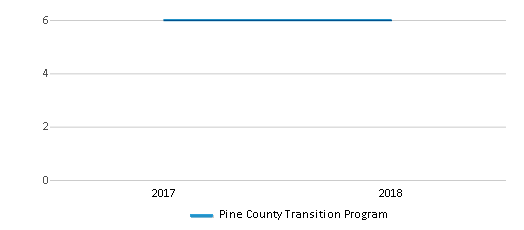
Total Classroom Teachers
1 teacher
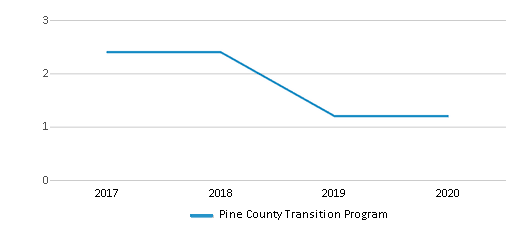
School Rankings
Student : Teacher Ratio
n/a
13:1
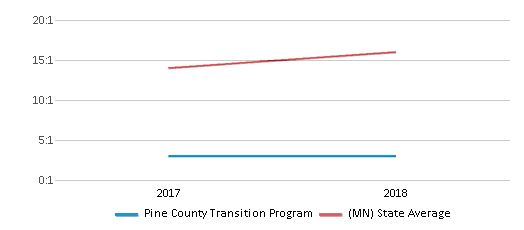
American Indian
(17-18)n/a
2%
Asian
(17-18)n/a
7%
Hispanic
(17-18)20%
9%
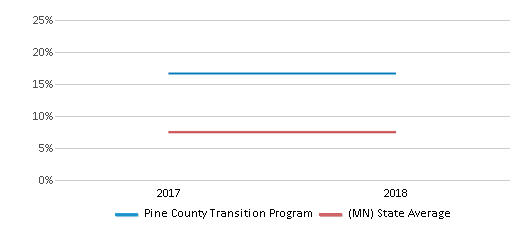
Black
(17-18)n/a
11%
White
(17-18)80%
67%
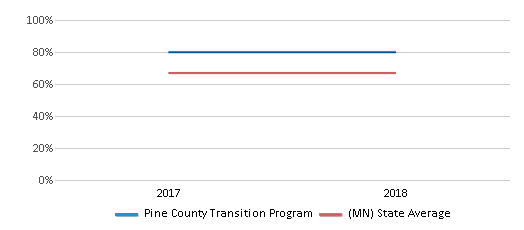
Hawaiian
(17-18)n/a
n/a
Two or more races
(17-18)n/a
4%
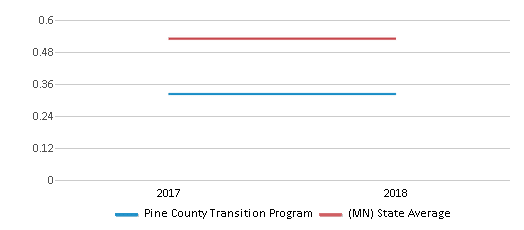
School Statewide Testing
School District Name
Source: National Center for Education Statistics (NCES), MN Dept. of Education
Profile last updated: 02/09/2025
Frequently Asked Questions
How many students attend Pine County Transition Program?
5 students attend Pine County Transition Program.
What is the racial composition of the student body?
80% of Pine County Transition Program students are White, and 20% of students are Hispanic.
What grades does Pine County Transition Program offer ?
Pine County Transition Program offers enrollment in grades 12
What school district is Pine County Transition Program part of?
Pine County Transition Program is part of Hinckley-Finlayson School District.
School Reviews
Review Pine County Transition Program. Reviews should be a few sentences in length. Please include any comments on:
- Quality of academic programs, teachers, and facilities
- Availability of music, art, sports and other extracurricular activities
Recent Articles

What Is A Charter School?
Explore the world of charter schools in this comprehensive guide. Learn about their history, how they operate, and the pros and cons of this educational innovation. Discover key facts about charter schools, including admission policies, demographics, and funding, as well as what to look for when considering a charter school for your child.

10 Reasons Why High School Sports Benefit Students
Discover the 10 compelling reasons why high school sports are beneficial for students. This comprehensive article explores how athletics enhance academic performance, foster personal growth, and develop crucial life skills. From improved fitness and time management to leadership development and community representation, learn why participating in high school sports can be a game-changer for students' overall success and well-being.

February 05, 2025
Understanding the U.S. Department of Education: Structure, Impact, and EvolutionWe explore how the Department of Education shapes American education, from its cabinet-level leadership to its impact on millions of students, written for general audiences seeking clarity on this vital institution.






